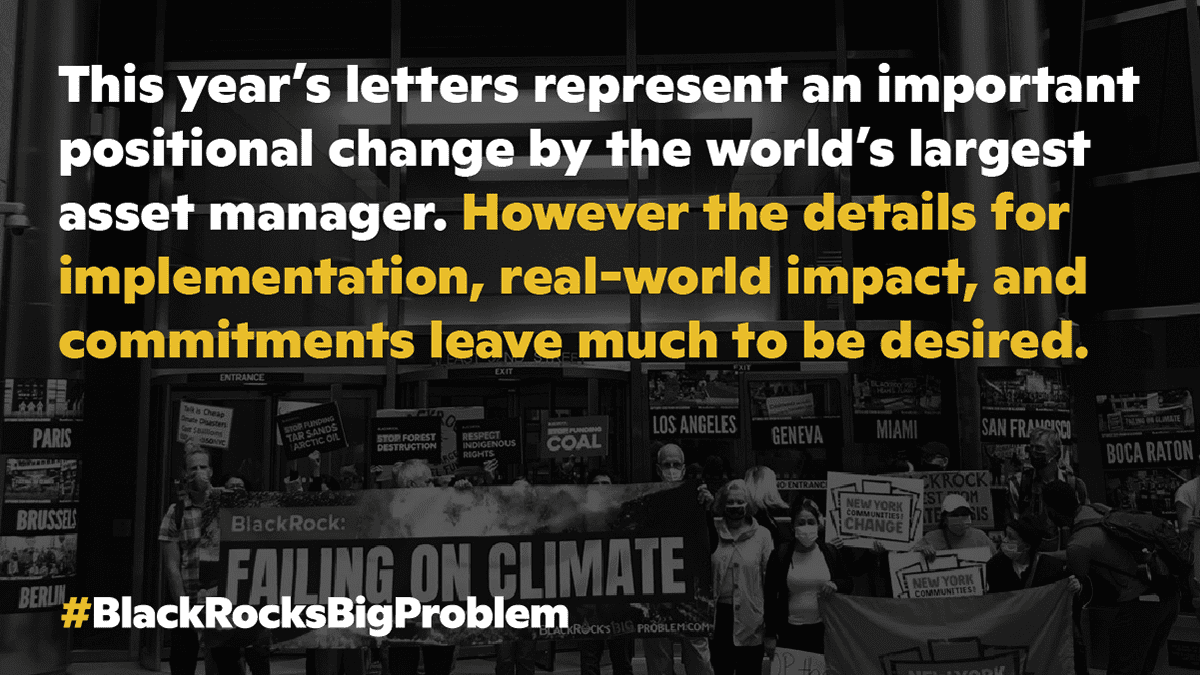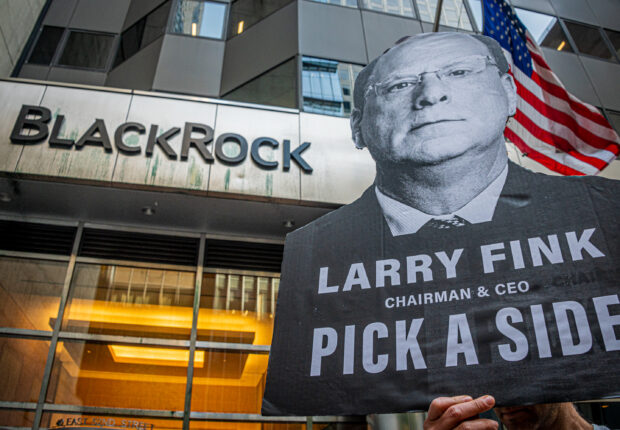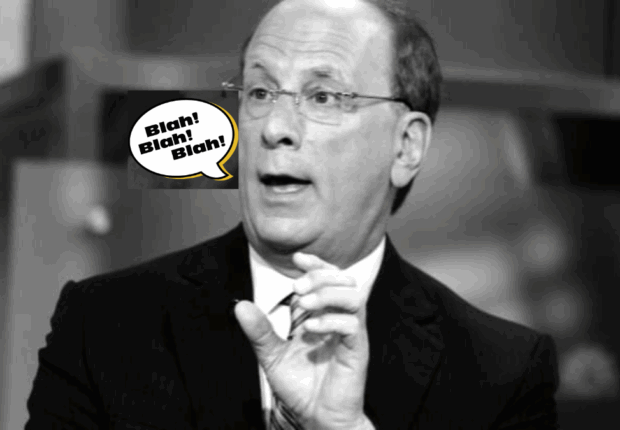Once again BlackRock CEO Larry Fink recently released public letters addressed to BlackRock clients and to CEOs of companies that BlackRock holds stock in.
This year's letters represent an important positional change by the world’s largest asset manager. They also expand on some of the statements Fink made in last year’s letters and subsequent policies rolled out by the company in 2020. However the details for implementation, real-world impact, and commitments leave much to be desired.
Read more below.

On January 26, Larry Fink released his annual letter to CEOs alongside a letter to clients signed by BlackRock’s Global Executive Team. Similar to last year, both letters are dedicated to BlackRock’s plans to address the urgent, systemic climate crisis and its plan for operating within our changing world.
Some of the key things BlackRock said it will do include:
- Support the goal of net zero greenhouse gas emissions by 2050 or sooner.
- Ask companies to disclose a plan for compatibility with a net zero economy that limits global warming to well below 2ºC by 2050. Importantly, BlackRock specified that it may vote against management and potentially remove holdings from its active funds if it doesn’t see progress from companies.
- Increase basic transparency about its own direct and indirect emissions, including from the investment portfolios it manages.
In this year’s letters, BlackRock is finally acknowledging that voting against management and supporting shareholder proposals often leads to positive changes at companies, and it is promising to more routinely use its enormous voting power to address climate risks. This represents an important shift by the world’s largest asset manager.
The stance and changes discussed in this year’s letters could be game-changing for the financial sector and how it addresses climate change if implemented with stronger and more decisive action. The progress is encouraging, but there are still glaring gaps and questions that must be addressed.
The science has made it abundantly clear that limiting global warming to 1.5 degrees Celsius means radically reducing overall emissions over the next decade and achieving net zero emissions by 2050. Doing so means the world must stop the expansion of new fossil fuel extraction immediately, and begin a managed decline of existing fossil fuel production that upholds justice and equity for workers and impacted communities.
In most of the core new policies outlined in these letters, BlackRock has not provided a clear pathway for how it can sufficiently meet both short and longer term emission reduction goals. BlackRock’s weak coal exclusion policy from 2020 only affects 17% of the industry, and it has not yet adopted any exclusions on oil and gas. Furthermore, the letters fail to adequately address the human rights, Indigenous rights, and traditional landowner rights threatened by fossil fuel developers and companies tied to deforestation.
Our core recommendations for BlackRock, which we expand on in our full analysis, are:
- BlackRock should clearly and carefully define what net zero means in practice, with an emphasis on reducing greenhouse gas emissions and impacts on vulnerable communities. It must be accompanied by short and medium term benchmarks for emissions reductions, and should include restrictions on fossil fuel investments in its active portfolios.
- In its net zero commitment, BlackRock should account for the impacts on deforestation, human rights, Indigenous rights and traditional land owner rights, and avoid flimsy or false solutions involving land use.
- BlackRock should shift its stewardship priorities from a narrow focus on the direct risks to portfolios from climate change to a more complete accounting for the climate impacts and further risks that its investments may cause. To embrace this accountability, BlackRock must back the plan outlined in its 2021 letters with concrete standards and timelines, and hold to them.
In 2018, the BlackRock’s Big Problem campaign and global network grew out of a recognition that BlackRock, the world’s largest investor in fossil fuels and deforestation commodities, was failing to recognize the scale and scope of its climate problem – and the urgent responsibility it has to act on it. Larry Fink reinforced that problem when he did not mention climate change once in his 2019 letter to CEOs.
While the 2021 letters indicate further progress and several steps in the right direction for the financial giant, without strong policies and clarification, BlackRock still falls short of the visionary financial leadership that is needed to meet the scale and urgency of the climate crisis.
For a full analysis by the BlackRock’s Big Problem team, go to Larry’s Letter: our in-depth analysis.

